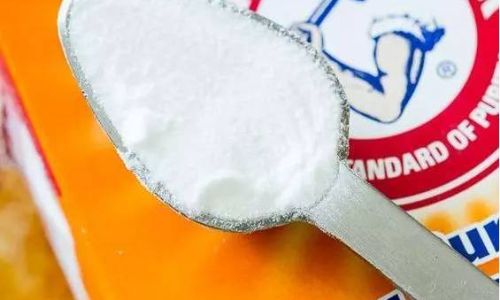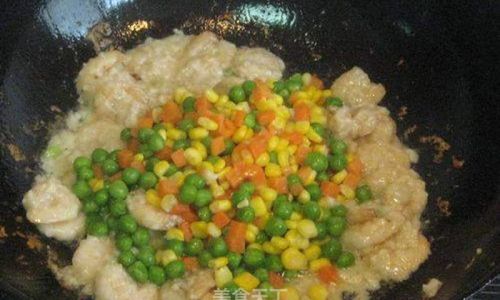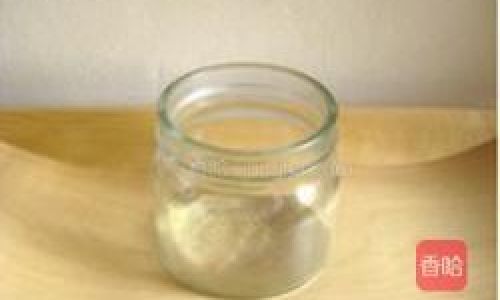Table of content
Introduction
Baking powder is a crucial ingredient in many baking recipes, providing the necessary lift and texture to cakes, muffins, cookies, and other baked goods. It is a chemical leavening agent that, when combined with moisture and heat, releases carbon dioxide gas, causing doughs and batters to rise and expand. However, like any other baking staple, baking powder’s effectiveness can diminish over time if not stored correctly. Proper storage is essential to ensure that your baking powder remains fresh and performs optimally in your recipes. This article will delve into the nuances of how to store baking powder, addressing various factors that can affect its shelf life and performance.
Understanding Baking Powder
Before discussing storage methods, it’s important to understand what baking powder is and how it works. Baking powder is a dry, white powder composed primarily of baking soda (sodium bicarbonate), an acidifying agent (such as cream of tartar or monocalcium phosphate), and a drying agent (usually starch) to keep the mixture dry and free-flowing. When baking powder is mixed into a dough or batter and exposed to moisture, the acid and baking soda react, producing carbon dioxide gas. This gas forms bubbles within the batter, causing it to expand and rise during baking.
Types of Baking Powder
There are two main types of baking powder: single-acting and double-acting. Single-acting baking powder reacts once with moisture, releasing all its gas immediately. This type is less common today because it doesn’t provide the same level of rise as double-acting baking powder. Double-acting baking powder, on the other hand, reacts twice: once when it comes into contact with liquid ingredients and again when exposed to heat in the oven. This two-stage reaction provides a more consistent and reliable rise, making it the preferred choice for most baking applications.
Factors Affecting Baking Powder Freshness
Several factors can impact the freshness and effectiveness of baking powder:

-
Humidity: Exposure to moisture can activate the baking powder prematurely, causing it to lose its lifting power before it’s even used in baking.
-
Temperature: Extreme temperatures, especially heat, can accelerate the chemical reaction in baking powder, leading to a loss of potency.
-
Air Exposure: Prolonged exposure to air can cause the baking powder to absorb moisture from the atmosphere, gradually reducing its effectiveness.
-
Age: Over time, even properly stored baking powder will gradually lose its potency due to the natural breakdown of its chemical components.
-
Impurities: Contamination from other ingredients or foreign particles can also affect the performance of baking powder.
Signs of Expired Baking Powder
It’s important to know when your baking powder has lost its effectiveness. Here are some signs that indicate your baking powder may no longer be fresh:
- Lack of Rise: Baked goods fail to rise properly or rise unevenly.
- Dense Texture: Finished products have a dense, heavy texture rather than being light and fluffy.
- Odd Taste or Smell: Expired baking powder may develop an off taste or smell.
- Date Check: If you’re unsure, check the expiration date on the packaging, though this isn’t always reliable if the product has been improperly stored.
Proper Storage Techniques
To maximize the shelf life and effectiveness of your baking powder, follow these storage guidelines:
Sealed Container
Always store baking powder in an airtight container. This prevents moisture and air from entering, which can degrade the product. Glass jars with tight-fitting lids or plastic containers with secure seals are ideal. Avoid using containers that have been previously used for other ingredients, as they may contain residue that could contaminate the baking powder.
Cool, Dry Place
Store your baking powder in a cool, dry place. Avoid areas where temperatures fluctuate significantly, such as near ovens, radiators, or in direct sunlight. The ideal storage temperature is between 60°F to 75°F (15°C to 24°C). A pantry or a cupboard away from heat sources is a good choice.
Away from Humidity
Keep baking powder away from any sources of humidity, such as sinks, dishwashers, or areas prone to condensation. High humidity can cause the baking powder to absorb moisture, leading to premature activation and loss of potency.

Avoid Direct Contact with Other Ingredients
Store baking powder separately from other baking ingredients to prevent cross-contamination. If baking powder comes into contact with liquid or acidic ingredients before it’s meant to, it will start to react and lose its lifting power.
Label and Date
If you transfer baking powder from its original packaging to a storage container, be sure to label the container with the contents and the date of transfer. This will help you keep track of how long the baking powder has been stored and make it easier to rotate older batches out of use.
Use within the Expiration Date
While proper storage can extend the shelf life of baking powder, it’s still important to use it within the manufacturer’s recommended expiration date. Once opened, most baking powders retain their potency for about 6 to 12 months, depending on storage conditions.
Test for Freshness
If you’re unsure whether your baking powder is still good, you can perform a simple test. Add a half teaspoon of baking powder to a quarter cup of hot water. If the mixture fizzes and bubbles vigorously, the baking powder is still fresh. If there’s little or no reaction, it’s time to replace it.
Avoid Freezing
While freezing can extend the shelf life of many foods, it’s not recommended for baking powder. Freezing can cause the chemical components to separate, making the baking powder less effective when it’s thawed.
Storage in the Original Packaging
If the original packaging is airtight and moisture-proof, you can store the baking powder directly in it. However, if the packaging is not secure or has been opened and resealed multiple times, transfer the baking powder to a more suitable container.
Long-Term Storage Considerations
If you buy baking powder in bulk or want to store it for an extended period, consider vacuum sealing it or using oxygen absorbers to remove any residual oxygen from the packaging. This can significantly extend the shelf life by preventing oxidation and moisture absorption.
Handling and Usage Tips
Once you’ve ensured that your baking powder is properly stored, here are some tips for handling and using it effectively:
- Measure Accurately: Always measure baking powder using dry measuring cups, and level off the excess with a knife to avoid using too much or too little.
- Sift if Necessary: If your baking powder has been stored for a while or if it’s been exposed to humidity, sift it before use to remove any lumps or moisture.
- Don’t Overmix: Once baking powder is added to a batter, mix gently to avoid activating it prematurely. Overmixing can cause the gas to escape before the batter goes into the oven.
- Store Unused Portion Properly: If you don’t use all the baking powder in one sitting, immediately transfer the remaining portion back to its storage container and seal it tightly.
Conclusion
Proper storage of baking powder is crucial for ensuring that your baked goods rise beautifully and have the desired texture and flavor. By following the guidelines outlined in this article—storing baking powder in an airtight container, in a cool, dry place, away from humidity and direct contact with other ingredients, and using it within its expiration date—you can maximize its shelf life and effectiveness. Remember to test for freshness before use and handle it carefully to avoid premature activation. With these practices in place, your baking powder will remain fresh and ready to help you create delicious, light, and fluffy baked goods.






0 comments